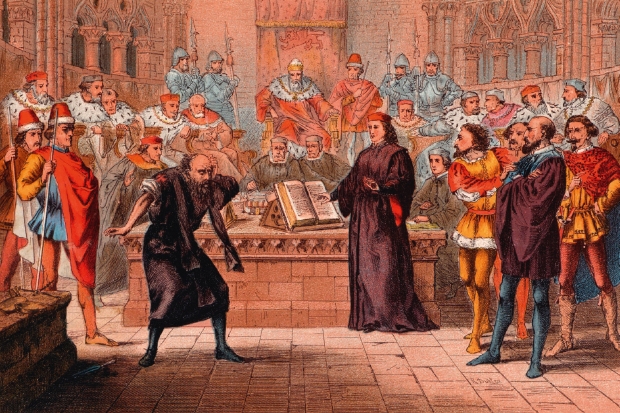Given this year’s 400th anniversary of Shakespeare’s death, there was always going to be a slew of new publications; few, I suspect, will have as long-lasting an effect as John Kerrigan’s. His field of inquiry is both straightforward and complicated. It is almost retrospectively obvious that Shakespeare’s plays contain a great amount of vows, oaths, swearing both covenantual and vulgar, pledges, promises and imprecations. The same might be said for a great many playwrights’ works; but the depth of subtlety which Kerrigan finds in the handling of these specific rhetorical forms is compelling.
It comprises broad historical context —this was an age in which oaths of allegiance were politically demanded and theologians debated, sometimes clandestinely, the extent to which one might perjure oneself for a higher moral reason — and attentive readings of the plays. Although it deals with major texts, the concentration on less well known or infrequently staged plays is welcome: the forswearing of female company (and avowals of fidelity) in Love’s Labour’s Lost; the compacts of vengeance in Henry VI Part 2 and Titus Andronicus; the oaths and tokens in Troilus and Cressida and the forked-tongue allegiances in King John, Henry VIII and the unstaged Sir Thomas More.
When Kerrigan does discuss the A-level plays, he uses the Final Honours texts to throw them into relief. So, Hamlet is discussed in terms of the ways in which the scenes one might assume would appear in a revenge tragedy are slyly avoided. Important parallels are drawn between Macbeth and All’s Well That Ends Well, not just in terms of equivocation and riddling but the oddly gothic ending of All’s Well, with the pregnant Helena — ‘one that’s dead is quick’ — appearing as unfeasibly as the man ‘not born of woman’. Timon of Athens and King Lear have been compared before in terms of their misanthropic rustication, but not in terms of their fascination with generosity and profligacy.
Kerrigan has a keen eye for the overlooked moment — Othello’s name not only has a quibble on ‘oath’ in it, he is kneeling while his subordinate Iago at first stands; the significance of the reference to Laertes having trained with the Norman Lamord; the parallel dead or condemned brothers in Measure for Measure. I am delighted to know that a 1620 German adaptation of Titus featured a stage direction that indicates that, in early performances, Titus picked up his own severed hand and thrust it to heaven. Even when straying from his theme into speculation, there is an enlightening scrutiny: why does nobody notice that Claudius’s cover story for the death of Old Hamlet — a snake bite — is singularly unlikely in northern Europe?
The reading of The Merchant of Venice is very strong indeed, and tries to reconcile the Shylock–Antonio plot with the love comedy along the lines of indebtedness, reciprocal exchanges and broken promises. Time and again, the book shows that to plight your troth puts you in plight.
With somewhat academic abashment, Kerrigan writes that Shakespeare’s Binding Language ‘was not written, however, to encourage others to look at oaths, vows and profanities’, yet it is precisely what it does, if not in a scholarly sense, then in a readerly one. Vows intersect curiously with questions of identity, as when Proteus in The Two Gentlemen of Verona realises that, of his friends and promises, ‘if I keep them, I needs must lose myself’, Iago swears, ‘Heaven is my judge’, that he is hostile to Othello — but ends ‘I am not what I am.’
Kerrigan’s very elegant and adept reading of Coriolanus sent me back to the text,where promising, vowing and integrity are such concerns. There I noticed that Coriolanus does not attack Aufidius in Act V on the mention of the word ‘traitor’, but after he says ‘Name not the god, thou boy of tears’ after Coriolanus invokes Mars, prompting derisory repetitions of ‘boy’ by Coriolanus, who has tried to align vir and virtue throughout, succumbing to petulant fury. Of course, Coriolanus invoked Mars in Act I. Occasionally, a wry eyebrow can be detected — as when Kerrigan notes that some critics have fixated on the anus at the end of the name Coriolanus — but he brings it back graciously looking at the cor-etymology, and the debate on tongues swearing what hearts deny, and even suggesting, a tad inventively, a regal hint in rio.
Even when I read with scepticism, I read this with enthusiasm. All the make-books of hypothetical authorship, missing skulls and luvvie platitudes will not be as deep or as rewarding.






Comments